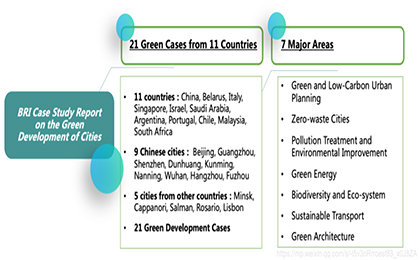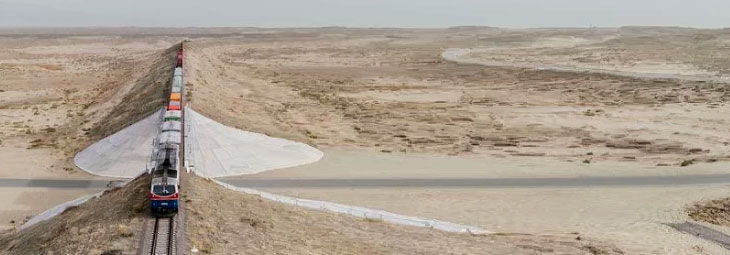


In the future, the strain between economic development and fragile eco-environment will become even more prominent, making it urgent for BRI participating countries to pursue green and sustainable development. BRI participating countries, mostly developing countries, are in similar stages of development with similar ecological and environmental challenges. They have accumulated much experience and best practices that need to be shared. Meanwhile, many cities have proposed and implemented plans to promote renewable energy, carbon neutrality and climate resilience, providing experience and good practices for other cities to pursue green development.

The BRI Case Study Report on Green Development of Cities showcases the valuable experience of BRI participating countries in promoting the green development of cities, through scientific research and data analysis in consideration of the United Nations 2030 SDGs. The Report focuses on eight priority areas of relevance to the development of green cities, including green and low-carbon urban planning, zero-waste cities, pollution control and environmental improvement, green energy, biodiversity and nature-based solutions, sustainable transportation, green buildings, and international cooperation on the development of green cities. The cases are selected from BRI participating countries or key cities on the Silk Road Economic Belt and 21st Century Maritime Silk Road, with priority to projects invested and built by Chinese enterprises, initiated by host countries and constructed by Chinese enterprises, or inspiring to the development of green cities.

The Report showcases 21 green city development cases from over 10 countries, including: Shenzhen International Low-Carbon City, Sustainable Development in Guangzhou, China-Belarus Great Stone Industrial Park, Capannori Zero-Waste City in Italy, Zero-Waste City of Singapore, Zero-Waste City of Shenzhen, Comprehensive Air Pollution Control in Beijing, Sewage Treatment and Utilization in Israel, Black and Odorous Waters Treatment of Nakao River in Nanning, King Salman Energy Park (SPARK) in Saudi Arabia, the Development of 100% Renewable Energy City in Dunhuang, Urban Agriculture in Rosario of Argentina, Kunming's Toolkit for Biodiversity Conservation, Green Corridor in Lisbon, Forged by Floods: Wuhan Yangtze Riverfront Park, the Introduction of Clean Electric Buses in Chili, Diesel Multiple Unit (DMU) Trains in Malaysia, Promotion of Bike Sharing in Hangzhou, South Africa's Green Building Rating Tool, Vertical Greening in Singapore, Model City of the Application of Renewable Energy in Buildings in Fuzhou, and China-ASEAN Partnership for the Development of Eco-friendly Cities.
Source:<https://mp.weixin.qq.com/s/-I5v3oRrroest83_x0J8ZA>
Translated by Zhang Yuxi